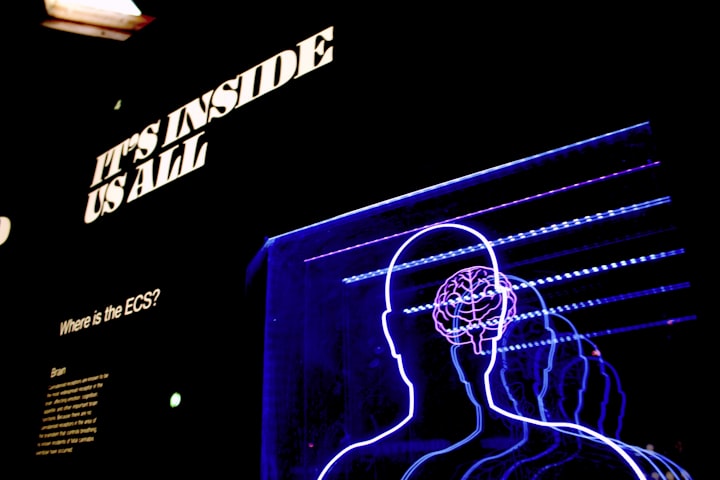The psychology of failure
How to overcome your mistakes

In a study, over 400 participants were enlisted to learn a mysterious, invented language. Individuals were asked about three pairs of runes— for example, which of these two characters represents an animal?


Then, after a brief break, they were asked about the same rune pairs with questions flipped, as in, which of these two runes represents a non-living object?
But this game had a secret— The subjects’ answers in round one determined the runes’ meanings in round two. In the first round, participants either had all their answers marked as correct no matter what, or they were forced to fail every question. This meant that at the break, every participant had the same amount of information, and in round two they were playing for real. But despite this even playing field, the successful participants from round one rose to the top of the ranks, while those cast as failures kept, well, failing.
That study is quite fascinating! It highlights the impact of perceived success or failure in a learning context and its influence on subsequent performance. The way participants were placed in either a 'success' or 'failure' group in the initial round, regardless of their actual performance, shaped their subsequent approach and outcomes in the following round.
Even though all participants had the same level of information during the break between rounds, the psychological effect of the initial perceived success or failure seemed to persist. Those who were initially labeled as successful tended to continue performing well in the subsequent round, whereas those labeled as failures often struggled to improve, despite the level playing field.
This sheds light on the significance of mindset and the impact of early experiences or perceptions on future performance. The study underscores how individuals' beliefs about their abilities, whether positive or negative, can significantly influence their subsequent learning and performance, even when faced with identical circumstances or information.
It's a powerful reminder of the psychological aspects that can shape learning outcomes and how the way we perceive ourselves in learning situations can impact our success or failure, often regardless of the actual level of knowledge or skill.
Failure can indeed be a rich source of learning and growth, but its transformation into a teachable moment isn't always straightforward. Several factors can hinder our ability to leverage mistakes for improvement:
Emotional impact: Failure can trigger emotions like frustration, disappointment, or self-doubt, making it challenging to approach the situation objectively. These emotions can cloud our ability to analyze the failure constructively.
Fear of failure: The fear of making mistakes or experiencing failure again might inhibit risk-taking or experimentation, hindering the learning process. This fear can create a mindset focused on avoiding failure rather than embracing it as a part of the learning journey.
Lack of reflection: Sometimes, after experiencing failure, individuals might hastily move on without reflecting deeply on what went wrong and why. Without introspection, it's challenging to extract valuable lessons from the experience.
Fixed mindset: A fixed mindset, where individuals believe abilities are innate and unchangeable, can lead to viewing failure as a reflection of inherent incompetence. This mindset discourages efforts to learn from mistakes and improve.
Overwhelm or confusion: Failure might occur in complex or ambiguous situations, making it difficult to pinpoint the exact cause or lessons to be learned. This can lead to a feeling of being overwhelmed or confused, impeding the learning process.
Turning mistakes into mastery requires a shift in perspective and approach:
Embracing a growth mindset: Cultivating a belief that abilities can be developed through dedication and effort can encourage resilience and a willingness to learn from failures.
Constructive reflection: Taking time to analyze failures objectively, identifying specific factors that led to the outcome, and considering alternative approaches can extract valuable insights.
Learning from feedback: Seeking feedback from mentors, peers, or experts can provide perspectives that help in understanding mistakes and guide improvement.
Incremental progress: Breaking down overwhelming failures into smaller, manageable parts can make it easier to address and learn from them step by step.
Ultimately, transforming failure into mastery involves viewing mistakes as opportunities for learning, resilience, and growth, despite the challenges they may present.
The emotional impact of failure is significant and deeply tied to our sense of self-worth and competence. Experiencing failure can indeed challenge our self-image and confidence, influencing our willingness to engage with new information or learning opportunities.
The survey following the replication of the rune study underscores how failure experiences can significantly impact self-confidence. When individuals face repeated failures or perceive themselves as unsuccessful, it can lead to a decline in self-esteem and a reluctance to engage further in learning or skill development related to that specific task or context.
Moreover, studies highlighting how feelings of demoralization or incompetence can hinder the brain's ability to process new information highlight the complex relationship between emotions and cognitive functioning. When the threat to self-esteem is substantial, it can create a mental barrier that impedes the receptiveness to new learning.
However, as mentioned above, the tolerance for failure is not uniform and can vary based on an individual's relationship with the task at hand. Factors such as intrinsic motivation, interest in the subject matter, and the perceived importance or relevance of the task can influence one's resilience in the face of failure.
For instance, individuals might display greater resilience and a willingness to persist in learning when they have a strong interest or passion for the subject. Additionally, a supportive learning environment, constructive feedback, and a culture that values learning from mistakes can also mitigate the impact of failure on one's self-esteem and learning abilities.
Understanding these dynamics can guide approaches to promoting a healthier relationship with failure. Creating an environment that normalizes failure as a part of the learning process, encouraging a growth mindset, and fostering intrinsic motivation can help individuals navigate and overcome the emotional barriers associated with failure, fostering a more resilient approach to learning and personal development.
In 2011, researchers surveyed a group of students . These students completed a questionnaire asking what kind of teacher they preferred— one who emphasized their strengths and successes, or one who highlighted their mistakes and corrected their weaknesses.
That study provides interesting insights into how individuals at different proficiency levels perceive and respond to feedback, particularly regarding positive reinforcement versus corrective feedback.
The distinction in preferences between beginner and advanced students suggests varying motivations and attitudes toward learning. Beginners, in the early stages of their learning journey, may be more focused on building confidence and maintaining motivation. Positive reinforcement and praise could serve as crucial tools for keeping them engaged and encouraging their continued interest in the subject.
In contrast, advanced students, having already committed to learning and developed a foundational understanding, might prioritize efficiency in improving their skills. They're likely more familiar with the learning process and have built a higher tolerance for making mistakes. For them, receiving critical feedback and addressing weaknesses could be seen as a more direct path to enhancing their proficiency and mastering the subject.
The differing preferences might also reflect the evolving psychological needs of learners at different stages. Beginners may seek affirmation and encouragement to build their confidence, whereas advanced learners might prioritize growth and improvement over praise.
Understanding these preferences in feedback can inform teaching strategies tailored to different proficiency levels. It emphasizes the importance of adaptive teaching approaches that consider the psychological and motivational aspects of learners at various stages of their learning journey, providing the right balance of positive reinforcement and constructive criticism to support their development and engagement.
The aftermath of an exam, especially when the result is not as expected, can be a complex scenario to dissect. Success can often seem straightforward to replicate, while failure can stem from various factors, some of which might be unclear or beyond our control. This uncertainty can make it challenging to identify precise areas for improvement.
There's a natural inclination to learn from failure, but fixating on those failures can sometimes overshadow our successes. It's crucial to strike a balance between learning from mistakes and acknowledging and leveraging our strengths and successes.
Acknowledging successes allows us to recognize and reinforce effective strategies and decisions we've made. It helps in understanding what works well and replicating those actions, leading to continued success. Celebrating and learning from successes provides a positive perspective and boosts confidence, contributing to a more resilient and growth-oriented mindset.
Focusing on strengths and successes doesn't mean ignoring failures or areas that need improvement. It's about approaching the learning process with a balanced perspective. By recognizing what's working well and leveraging those strengths, individuals can build a foundation for growth and improvement while also addressing areas that need attention.
Combining an understanding of what went right with a constructive analysis of what went wrong creates a comprehensive approach to learning and improvement. It allows for a holistic view that encompasses both successes and failures, fostering a mindset that is open to learning, adaptable to change, and driven by continuous improvement.
Summary
In navigating the intricate landscape of failure, the psychology behind our responses to setbacks becomes a pivotal aspect of our personal and professional growth. Embracing failure as a natural part of the learning process and recognizing its potential as a catalyst for growth is paramount. To overcome mistakes, fostering resilience, cultivating a growth mindset, and striking a balance between learning from failures and celebrating successes stand as pillars of empowerment. Understanding the emotional impact of failure, acknowledging its lessons without dwelling on setbacks, and leveraging our strengths to propel us forward constitute a holistic approach to navigating the complex terrain of setbacks. Ultimately, it's not merely about bouncing back from failure; it's about bouncing forward, armed with newfound wisdom, resilience, and an unwavering commitment to continuous improvement.





Comments
There are no comments for this story
Be the first to respond and start the conversation.